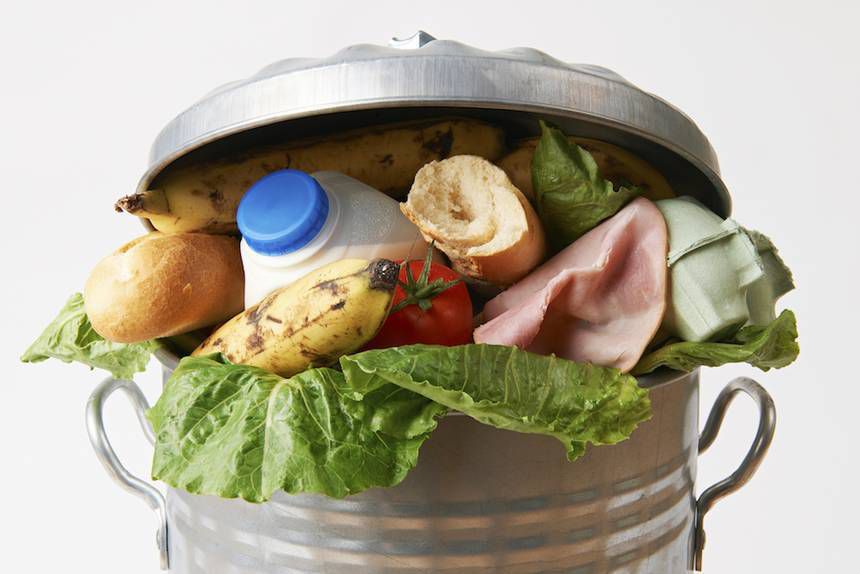
It's all about the culture.
Denmark is a superstar when it comes to cutting down on wasted food. In 2015 the Agriculture and Food Council announced that the country had reduced the amount of wasted food by 25 percent in five years. The public conversation about waste has been marvelously effective, and America should take notes.
But taking notes would only go so far. If Jonathan Bloom’s assessment in an article for National Geographic is accurate, then Danish success in the area of food waste is firmly rooted in cultural differences, which would make it difficult for Americans to follow suit. Here’s a quick run-down on why Bloom, author of American Wasteland, thinks Danes are so good at reducing food waste (and, by extension, why Americans are not).
Never underestimate the power of a passionate individual. The anti-food waste movement in Denmark has a well-known leader named Selina Juul, who emigrated from Russia as a teenager. Juul was shocked by the amount of food available and taken for granted, compared to the empty store shelves of her native country. She launched a group called “Stop Wasting Food” and is recognized as the force behind the past three governments’ attention to the problem of food waste.
It’s so trendy, in fact, that the Danish Princess Marie attended the grand opening of WeFood, a grocery store in Copenhagen that sells expired food to the general public. Danes love the WeFood concept so much that they line up daily to buy whatever has been donated, and while a few may be looking for a deal, the majority is there “for political reasons,” says Sidsel Overgaard for NPR. Demand has been so great that WeFood recently opened a second location.
Bloom also points out that a conservative minister held a “Better Food” conference. It is hard to imagine that happening in the U.S. right now.
With a population the size of Wisconsin and relatively small geographical boundaries, it’s relatively easy to spread a campaign message like “Stop Wasting Food” and get people on board. The Danes really do seem to care. While visiting Denmark, Bloom found that everyone, from his taxi driver to culinary educators to politicians, was eager to talk about food waste and why it’s an important issue – the results of a successful campaign!
Food is very expensive in Denmark. Danes allocate 11.1 percent of expenses toward food, whereas in the United States that amount is only 6.4 percent. When something costs a lot, a person is less likely to waste it (which is why we’ve made the argument before on TreeHugger that food should cost more).
‘Disposable’ culture has not permeated Denmark in the way that it has other nations. This is visible in its design and architecture, too; things here are built to last.
Because food is so expensive, Danes tend to eat in more often than they go out. This means that everyone knows how to prepare basic meals, even bake bread, and that more leftovers get incorporated into meals. In the words of Rikke Bruntse Dahl, who works at the Copenhagen House of Food, a center that strives to improve food quality in public kitchens:
“We are brought up to not waste resources and get the most out of what we’ve got, like housewives back in the day.”
And distances are short, which means that people tend to shop in smaller quantities on a daily basis, rather than stocking up with a weekly trip to the supermarket. When you’ve got a small fridge in the kitchen, it’s harder to lose track of perishable items on the distant, hard-to-reach back shelf.
Real change can happen when government policies change. As TreeHugger reported last summer, the Danish minister for food and the environment has made available a subsidy pool of almost US $750,000 to assist any projects tackling food waste, from production to consumption.
It’s helpful to have looser rules surrounding the sale of expired food, enabling the existence of stories like WeFood. In Denmark, as long as expired food is clearly labeled and shows no sign of health risk, it’s legal to sell.
So if it's all about Danish culture, does that mean we in North America should give up the fight? Never! These are valuable lessons that can be applied to our problem on this side of the ocean, and show us how best to approach the search for an effective solution. If you're wondering where to start, the single best thing you can do for your own household is to start cooking from scratch.
Source: Treehugger News Author Katherine Martinko
/image%2F1152236%2F20191031%2Fob_cdc6f8_hans-peter.jpg)